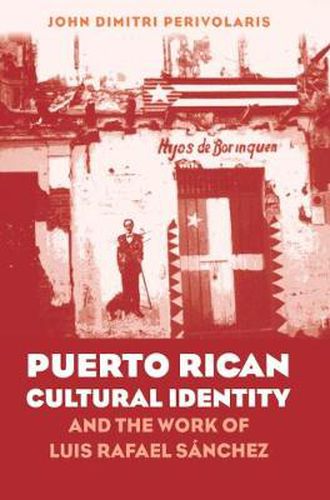Readings Newsletter
Become a Readings Member to make your shopping experience even easier.
Sign in or sign up for free!
You’re not far away from qualifying for FREE standard shipping within Australia
You’ve qualified for FREE standard shipping within Australia
The cart is loading…






This book undertakes the most comprehensive and theoretically rigorous examination to date of Luis Rafael S nchez’s work in the context of cultural politics in Puerto Rico, and of the international and regional dimensions of S nchez’s work in relation to the unique status of Puerto Rico as a commonwealth and colony. It explores S nchez’s ambivalent position as a member of an intellectual elite, a spokesman for el pueblo, and a Puerto Rican mulatto whose working-class background allows him to highlight unprecedented possibilities for political agency within popular and mass culture.
Through analyses of S nchez’s theater, prose, and essays, John Perivolaris examines continuing struggles to define Puerto Rican cultural identity. His detailed readings illuminate S nchez’s ironically humorous deployment of traditionally conservative paradigms of national and individual identity in his postcolonial critique of racialization, gender, sexuality, and Hispanism in the colony. This study fills a long-standing need for an introduction to the work of a major Caribbean and Latin American writer.
$9.00 standard shipping within Australia
FREE standard shipping within Australia for orders over $100.00
Express & International shipping calculated at checkout
This book undertakes the most comprehensive and theoretically rigorous examination to date of Luis Rafael S nchez’s work in the context of cultural politics in Puerto Rico, and of the international and regional dimensions of S nchez’s work in relation to the unique status of Puerto Rico as a commonwealth and colony. It explores S nchez’s ambivalent position as a member of an intellectual elite, a spokesman for el pueblo, and a Puerto Rican mulatto whose working-class background allows him to highlight unprecedented possibilities for political agency within popular and mass culture.
Through analyses of S nchez’s theater, prose, and essays, John Perivolaris examines continuing struggles to define Puerto Rican cultural identity. His detailed readings illuminate S nchez’s ironically humorous deployment of traditionally conservative paradigms of national and individual identity in his postcolonial critique of racialization, gender, sexuality, and Hispanism in the colony. This study fills a long-standing need for an introduction to the work of a major Caribbean and Latin American writer.